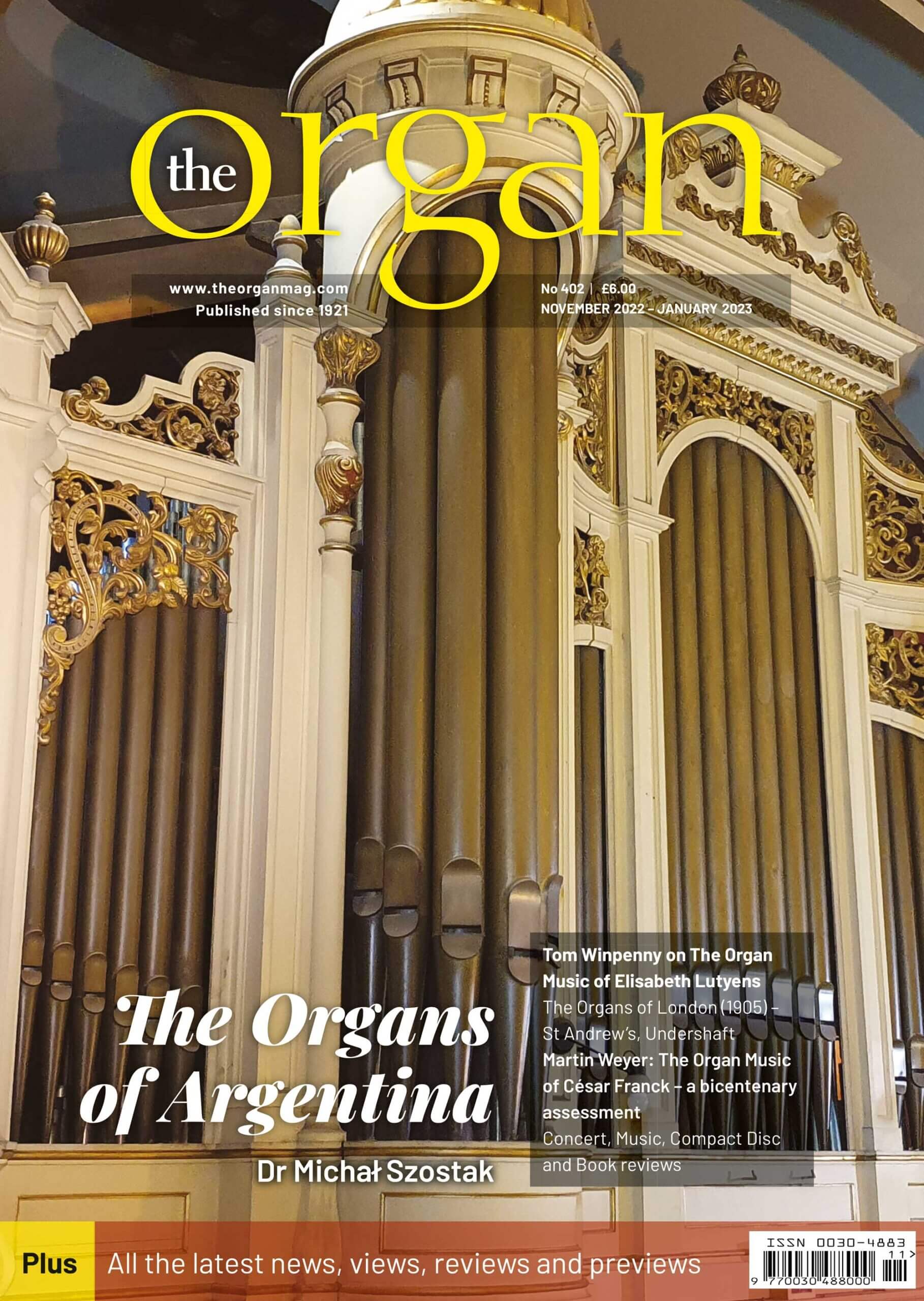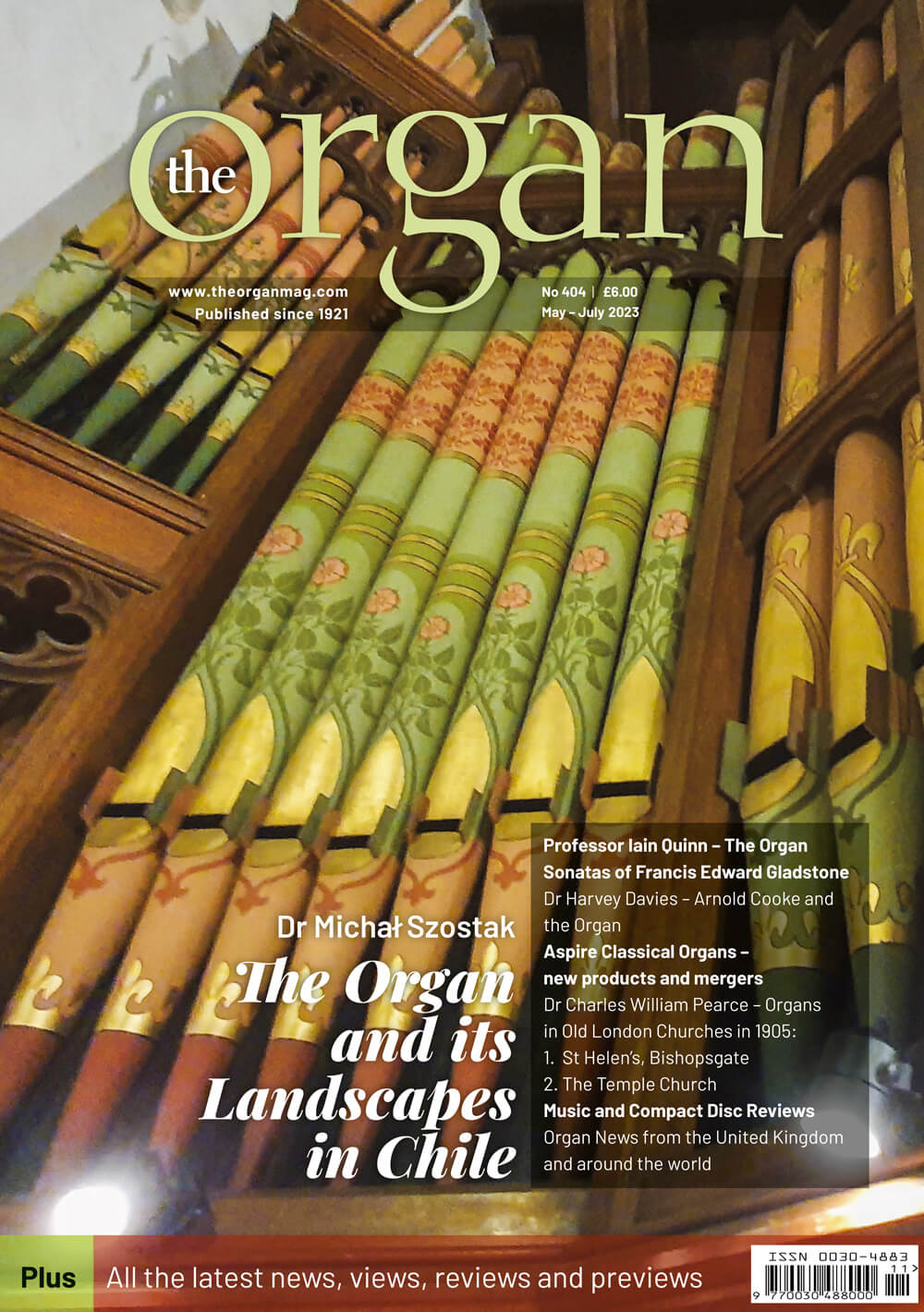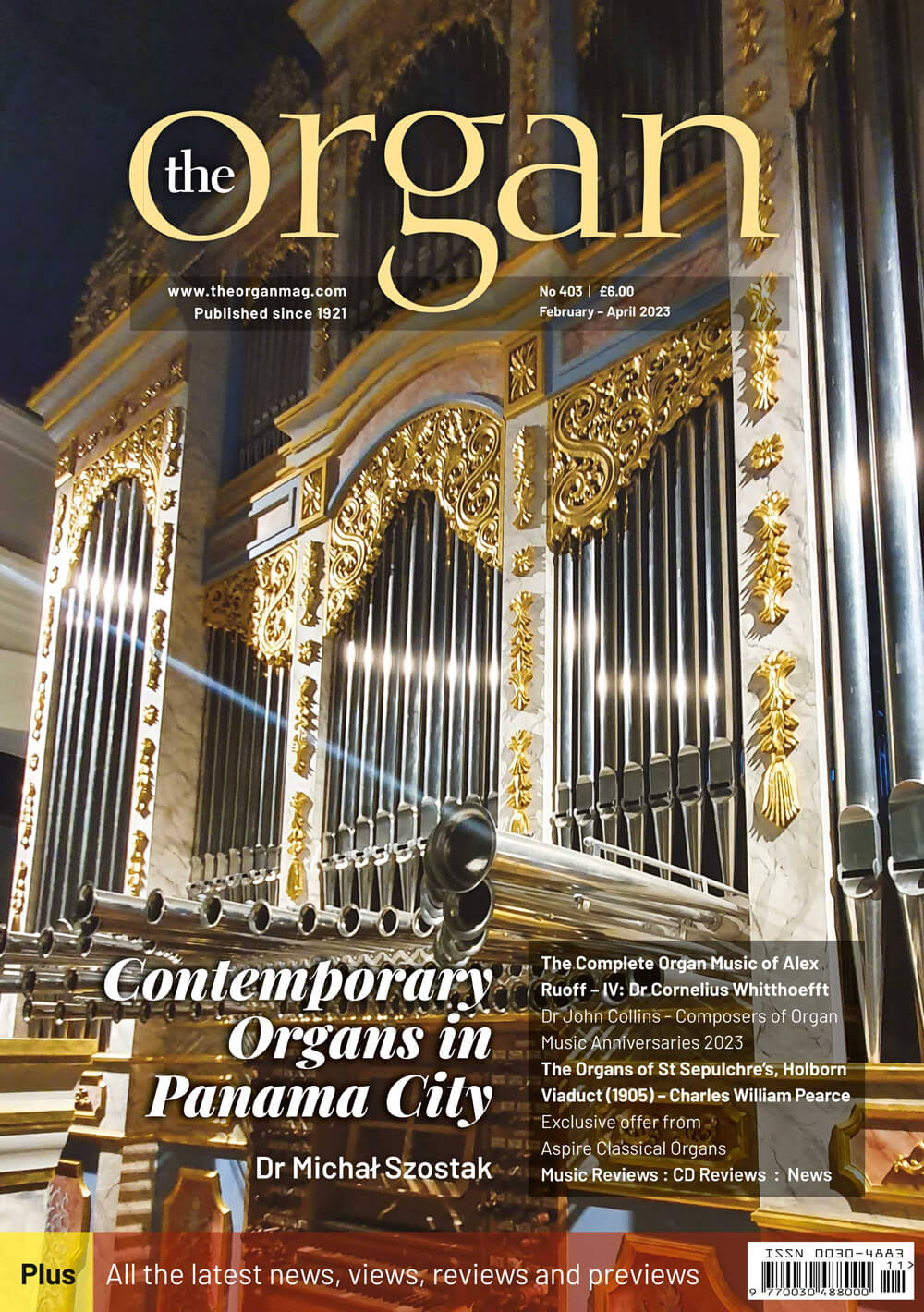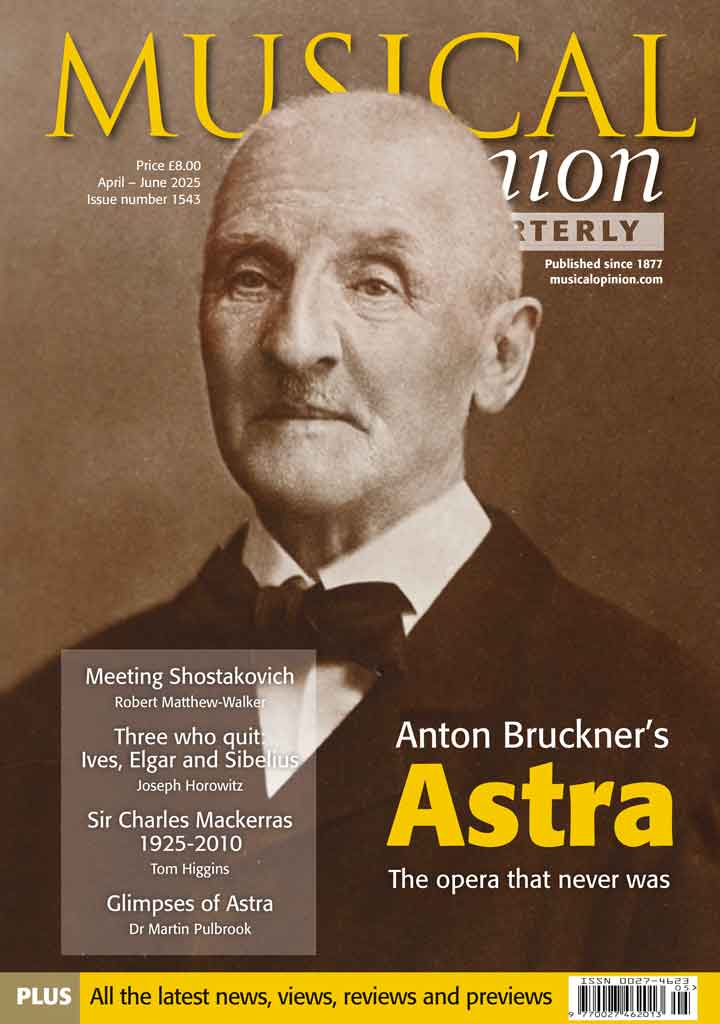

Current Issue
Reviews
Munich Bavarian State Opera – Donizetti: The Daughter of the Regiment
The last new production of Donizetti‘s opéra-comique La Fille du régiment at the Bavarian State Opera was in German (as Die Regimentstochter) and dates from September of 1935. The nearly 90-year gap is at least partly due to a general rejection in Germany of anything...
Handel: Jephtha: Royal Opera House, London
‘That whatsoever cometh forth of the doors of my house to meet me, when I return in peace from the children of Ammon, shall surely be the Lord’s, and I will offer it up for a burnt offering.’ Such is the vow of Jephtha, the eponymous hero of Handel’s final Oratorio....
Guest Editorial
Britten: Death in Venice
Marx in London!
Scottish Opera Glasgow – Jonathan Dove: Marx in London! This opera was first heard at the Stadttheater Bonn in 2018 in a staging by Jürgen R. Weber in commemoration of Marx’s 200th anniversary. Weber’s production is a satirical account of one day from Marx’s life in...
Berlin Staatsoper unter den Linden – Wagner: Tannhäuser
What happens when an opera house asks a ballet dancer and choreographer with her own dance company to produce an opera? There is a lot of ballet where normally there is not, and there is hardly any Personenregie. Tannhäuser has a place for ballet, normally given to...
The Ring Cycle in Sofia, Bulgaria
Parsifal Parsifal was the sixth Wagner opera to be produced at the Sofia Opera by Plamen Kartaloff in his mission to develop a Wagnerian tradition in Bulgaria. First staged in 2015, the preparation for the opera was assisted by Richard Trimborn. Kartaloff believes...
Bari – Teatro Petruzzelli: La Traviata
Is it possible the there is one Musical Opinion reader who has never seen La Traviata? And maybe is it also possible this reader has not formed an opinion about the central character before even seeing the opera? And maybe this reader also has a great degree of...
Opera North: Rigoletto
If you stroll around the ever-expanding Salford Quays complex these days, you will see a very different Media City to the one when the Lowry Theatre first opened more than 20 years ago. BBC and ITV studios, hotels, bars, restaurants, apartment blocks, trams and an...
New Recital Series at Leighton House from Lisa Peacock Concert Management
Lisa Peacock Concert Management Ltd announces the greatly anticipated appearance in London of Juan Pérez Floristán, Gold Medallist of the Arthur Rubinstein International Piano Master Competition 2021 in music by Chopin, Liszt, Wagner/Liszt and Beethoven on Saturday...
Explore By Topic
ENO – Rhinegold
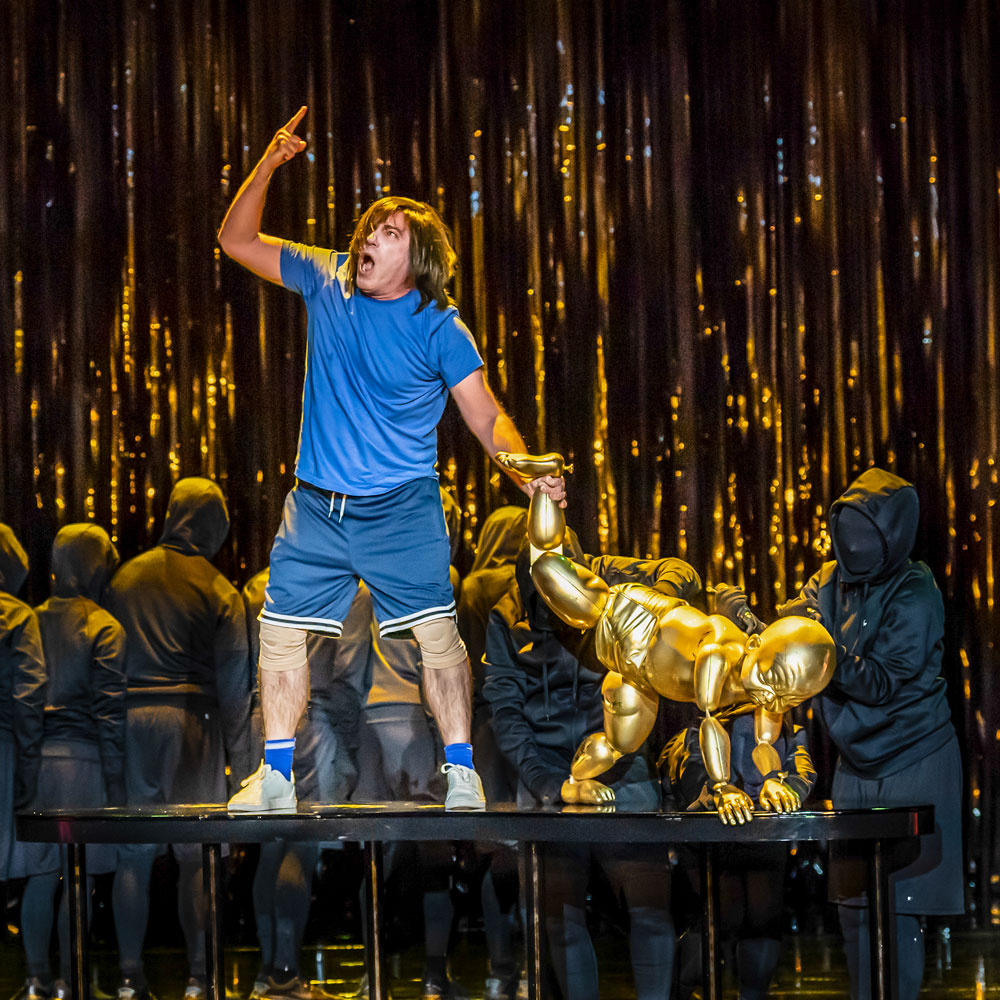
Effie Gray
Wotan may be a god, but he never strikes me as the brightest button in the box. His decision to give away Freia as payment to the giants for Valhalla, his castle in the sky, has clearly not been thought through. So too is the Arts Council’s decision to uproot English National Opera from its London home in the name of levelling up. English National Opera already ‘levels up’ in numerous ways: free tickets to the under 21s, a discount scheme for the under 35s and regular schools and relaxed performances, to name but a few. It is also partnered with 78 NHS Trusts for its ENO Breathe programme which helps people deal with the effects of long covid. Ironically, it founded Opera North in 1977 to bring more opera to the North of England. Without the fruits of ENO’s Harewood Artists programme, I fear that opera in the UK will wilt and fade, just like the gods without Freia’s apples. ENO has fought back, doing what it does best with a wonderful production of Das Rhinegold, the first opera in Wagner’s Ring Cycle, but the second production in what was to be ENO’s Ring Cycle. Sadly, the future of this Cycle is now in doubt due to the above Arts Council cuts.
In this prequel to his Ring Cycle, Wagner merged several stories from Norse Mythology. Alberich steals the Rhinegold. Wotan then steals it from Alberich in order to pay the giants for the return of Freia and the above mentioned apples. The giants fight over the gold, Fasolt dies and Fafner leaves with the Ring. The gods cross the rainbow bridge to Valhalla.
There was a lot of humour in Richard Jones’ production but the emotions and issues still resonated strongly. The toad, cousin of Kermit the Frog, was fun! Three appleless gods, made ancient by Spitting Image style masks, got some giggles. It is not an easy thing to depict the depth of a river on stage, but Stewart Laing’s glittering set, Adam Silverman’s lighting and Sarah Fahie’s movement created a striking effect. As the low grumbles of E flat came from the pit, the curtain slowly rose to a stage surrounded by shimmering streamers that pulsated with light as the Rhine music grew. The Rhinemaidens, wearing brightly coloured wetsuits, were buoyed along by dark figures that swirled and flowed with the music. There was some disturbing imagery and good visual use of the Leitmotifs or themes: Alberich crushing a giant gold baby into a ball to the ‘renunciation of love,’ and gold bars galore to the gold theme. There was tender love between Katie Lowe’s Freia and Simon Bailey’s Fasolt, a touching interpretation of Wagner’s scoring.
Wagner’s big moments, with brass and timpani resounding, was navigated with apparent ease by this superb cast of singers. As with all Richard Jones’ productions, the characters relationships were believable, and both their singing and silent interactions were packed full of nuance.
John Relyea’s shiny-suited Wotan had a Wolf of Wall Street vibe as he spat and sneered at those beneath his contempt. He paced his deep god-like tones well, and his voice rose above the mighty swell of the brass with impeccable diction and clear words. Madeleine Shaw, as Fricka, his long-suffering wife, made the most of this smaller part with imaginative use of vocal colour. For example the phrase, ‘scorning the worth of your wife’, changed from anger to vulnerability and pain. In an instant, she let the audience glimpse her inner turmoil. Leigh Melrose’s Alberich was extraordinary both vocally and physically: the bumbling gentle oaf from Scene One transformed into a vicious bully sitting atop his gleaming pile of gold in Scene Three, to the broken limping soul in Scene Four. I had to check my programme to make sure that he was the same singer. Frederick Ballentine was an impish Loge with a good grasp of the comedic pause. With his excellent tenor voice he made light work of this demanding role. His more lyrical moments, such as the golden apples section in Scene Two, had the sweetness and clarity of a Schubert song. The young American baritone, Blake Denson, was outstanding as Donner, not only was he very good at swinging a hammer but his enormous voice rumbled like thunder. Christine Rice was a rich-voiced Erda in a pair of pink sparkly pyjamas. However, as a mezzo soprano, a few of the lines were a little low in her voice. I would love to hear a true contralto sing this role, but if I can’t have one, I will take Christine Rice any day! The Rhinemaidens; Eleanor Dennis, Idunnu Münch and Katie Stevenson sounded particularly gorgeous in the harmony sections.
Under the baton of Martin Brabbins the ENO orchestra had it all: magnificent brass, foreboding timpani, luscious strings that fizzed with fire, and the rainbow bridge that flowed gloriously out of the harps. In the end, Valhalla was a concrete bunker. As Wotan turned a huge wheel to bolt the door, the Rhinemaidens banged on the windows as shutters came down. With three Harewood Artists banging on the windows and two former Harewood Artists locked inside, this should be food for thought for the Arts Council, Wotan’s bunker does not save the gods but heralds their downfall.


